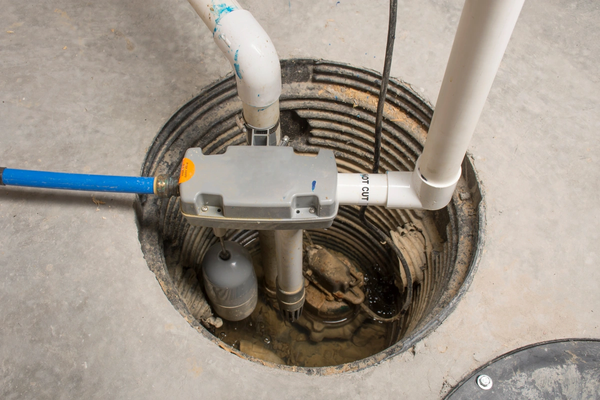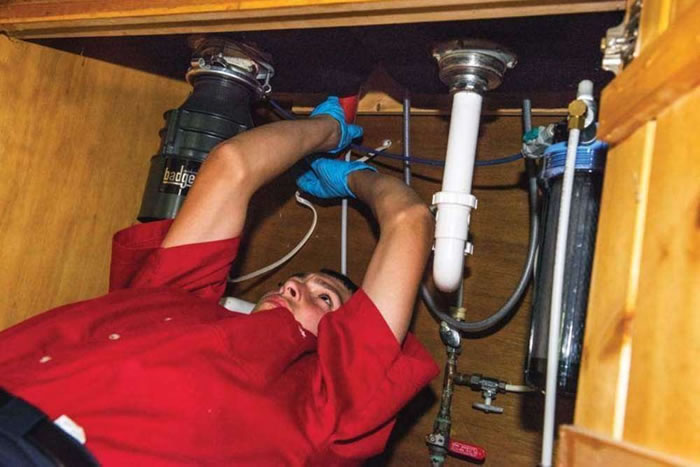Top Strategies for Resolving Low Water Pressure in Your Home
Top Strategies for Resolving Low Water Pressure in Your Home
Blog Article
What're your thoughts with regards to 9 Reasons for Low Water Pressure in Your House?

Low tide stress in your house can be a frustrating problem, impacting whatever from showering to cleaning meals. If you're experiencing weak water flow, there are a number of possible reasons and solutions to explore. In this guide, we'll go over typical reasons for low water stress and sensible steps to address the issue effectively.
Intro to Low Tide Pressure
Low water stress occurs when the flow of water from your taps, showers, and various other fixtures is weaker than common. This can make daily jobs much more difficult and much less reliable. Understanding the sources of low water stress is critical to finding the appropriate remedy.
Typical Reasons For Low Water Stress
Pipe Obstructions
Over time, pipes can end up being blocked with mineral deposits, sediment, or particles, limiting the flow of water. This is a common concern in older homes with galvanized steel pipes.
Rust
Corrosion within pipes can result in leakages and minimized water stress. Rust build-up can constrict water flow, specifically in aging plumbing systems.
Faulty Pressure Regulators
Stress regulators are accountable for preserving regular water pressure in your home. If they malfunction, it can cause low water stress or unequal circulation throughout your home.
Metropolitan Water Issues
In some cases, the issue exists outside your home. Metropolitan supply of water problems, such as main line leaks or maintenance job, can briefly reduce water stress in your location.
How to Identify Low Water Pressure
Checking Faucets and Components
Beginning by evaluating the water stress at different faucets and fixtures throughout your home. If the problem is separated to specific areas, it might suggest local issues.
Examining Pipes
Inspect visible pipes for indicators of leaks, rust, or clogs. Take note of any kind of uncommon noises, such as banging or rattling pipes, which can show concerns within the plumbing system.
Consulting with a Plumber
If you're not able to identify the root cause of low water stress, think about employing an expert plumber to conduct a comprehensive examination. They can identify underlying concerns and recommend ideal services.
Do It Yourself Solutions to Fix Low Tide Stress
Cleansing Aerators and Showerheads
Natural resources can gather in aerators and showerheads, reducing water circulation. Remove and cleanse these elements on a regular basis to improve water stress.
Flushing Hot Water Heater
Debris buildup in the water heater can restrict flow and lower efficiency. Flushing the tank periodically helps remove debris and keep ideal performance.
Inspecting Pressure Regulatory Authority
Guarantee that the pressure regulator is functioning properly. Changing or replacing the regulator can help recover proper water stress throughout your home.
Clearing Clogs in Piping
For small clogs, attempt using a plumbing serpent or chemical drainpipe cleaner to clear obstructions in pipelines. Beware when using chemicals and adhere to security guidelines.
When to Call a Professional Plumber
If DIY efforts fall short to settle the issue or if you presume significant plumbing troubles, it's ideal to look for assistance from a certified plumber. They have the expertise and devices to resolve complex problems securely and efficiently.
Preventive Measures to Keep Water Pressure
Normal Upkeep
Schedule routine upkeep for your plumbing system to avoid issues such as rust, leaks, and clogs. Dealing with small problems early can assist prevent even more significant repair work later on.
Installing a Stress Booster
Consider mounting a stress booster pump to enhance water stress in areas with constantly reduced flow. This can be specifically valuable for multi-story homes or residential or commercial properties with high-demand components.
Surveillance Water Use
Bear in mind water use behaviors and avoid ill-using the plumbing system. Straightforward changes, such as incredible showers and laundry loads, can aid preserve appropriate water pressure.
Final thought
Managing low water pressure can be aggravating, however identifying the underlying reasons and implementing appropriate options can restore optimal flow throughout your home. Whether it's cleaning aerators, evaluating pipes, or seeking advice from a plumber, taking positive steps can make certain a constant supply of water for your daily needs.
FOUR WAYS TO FIX LOW WATER PRESSURE NOW
Turning on a shower or faucet only to find the water comes out in a sad, slow drizzle is never a good feeling. How exactly are you supposed to wash a pan or take a quick shower when it takes 10 minutes just to rinse off a little soap? The good news is that when your water pressure is bad, there's always a cause: typically one that can be easily fixed. Here are some of the most common causes of low pressure and what you can do to fix the issue:
DEBRIS AND MINERAL DEPOSIT BUILDUPS
If you notice low water pressure from just one or two of the fixtures in your house, the problem likely has to do with debris buildup. Water is full of minerals and other debris, all of which can accumulate in your pipes and on your fixtures. This can cause a blockage that affects how much water flows through. To fix this, try filling a small plastic bag with white vinegar, and use a rubber band to hang it around your showerhead or faucet. Let the head of the fixture soak for a few hours, and the vinegar should loosen the deposits.
WATER LEAKS
Leaks are another common cause of low water pressure. If water is flowing out of your plumbing through a hole or crack before it can reach your fixture, the pressure coming out of the faucet or showerhead will be lower. A plumbing professional is your best bet for finding and repairing a leak in your water supply pipes.
Leaks are another common cause of low water pressure. If water is flowing out of your plumbing through a hole or crack before it can reach your fixture, the pressure coming out of the faucet or showerhead will be lower. A plumbing professional is your best bet for finding and repairing a leak in your water supply pipes.
FOUR WAYS TO FIX LOW WATER PRESSURE NOW
Turning on a shower or faucet only to find the water comes out in a sad, slow drizzle is never a good feeling. How exactly are you supposed to wash a pan or take a quick shower when it takes 10 minutes just to rinse off a little soap? The good news is that when your water pressure is bad, there's always a cause: typically one that can be easily fixed. Here are some of the most common causes of low pressure and what you can do to fix the issue:
DEBRIS AND MINERAL DEPOSIT BUILDUPS
If you notice low water pressure from just one or two of the fixtures in your house, the problem likely has to do with debris buildup. Water is full of minerals and other debris, all of which can accumulate in your pipes and on your fixtures. This can cause a blockage that affects how much water flows through. To fix this, try filling a small plastic bag with white vinegar, and use a rubber band to hang it around your showerhead or faucet. Let the head of the fixture soak for a few hours, and the vinegar should loosen the deposits.
WATER LEAKS
Leaks are another common cause of low water pressure. If water is flowing out of your plumbing through a hole or crack before it can reach your fixture, the pressure coming out of the faucet or showerhead will be lower. A plumbing professional is your best bet for finding and repairing a leak in your water supply pipes.
Leaks are another common cause of low water pressure. If water is flowing out of your plumbing through a hole or crack before it can reach your fixture, the pressure coming out of the faucet or showerhead will be lower. A plumbing professional is your best bet for finding and repairing a leak in your water supply pipes.
A VALVE ISSUE
If you have low water pressure throughout your home, check your main shut-off valve to make sure it's completely open. You may also want to see if there's a pressure-reducing valve installed. If there is, have a plumber help you adjust the settings to get the pressure you're looking for.
OTHERS USING WATER
Believe it or not, your low water pressure could be caused by your neighbors. If you notice low pressure at certain times of day, it may be because you and the people living next to you have similar schedules - when everyone is showering at the same time, the pressure will be lower in every home. Low pressure throughout the neighborhood may also be caused by an issue with your municipal water supply. If that's the case, call the supplier to see if they're working on the issue.
https://www.rotorooter.com/blog/water-leaking/low-water-pressure-fixes/

I ran across that write up about Dealing with Low Water Pressure in Your Home while perusing the web. If you please pause to promote this page if you appreciated it. Many thanks for your time spent reading it.
Here Report this page